Munich is home to some of Germany’s most recognised companies, such as Allianz, BMW and Siemens. In fact, it has more DAX-listed corporations than any other urban region in the country. It also hosts Apple’s largest engineering hub in Europe, software engineering and product development teams for Google and a large Amazon office as well. In other words: whether one works in technology, engineering or insurance, there's always business in Munich.
Looking for the best hotels in Munich or wondering what to do in your spare time? Our Munich business guide will ensure you make the most of your trip.
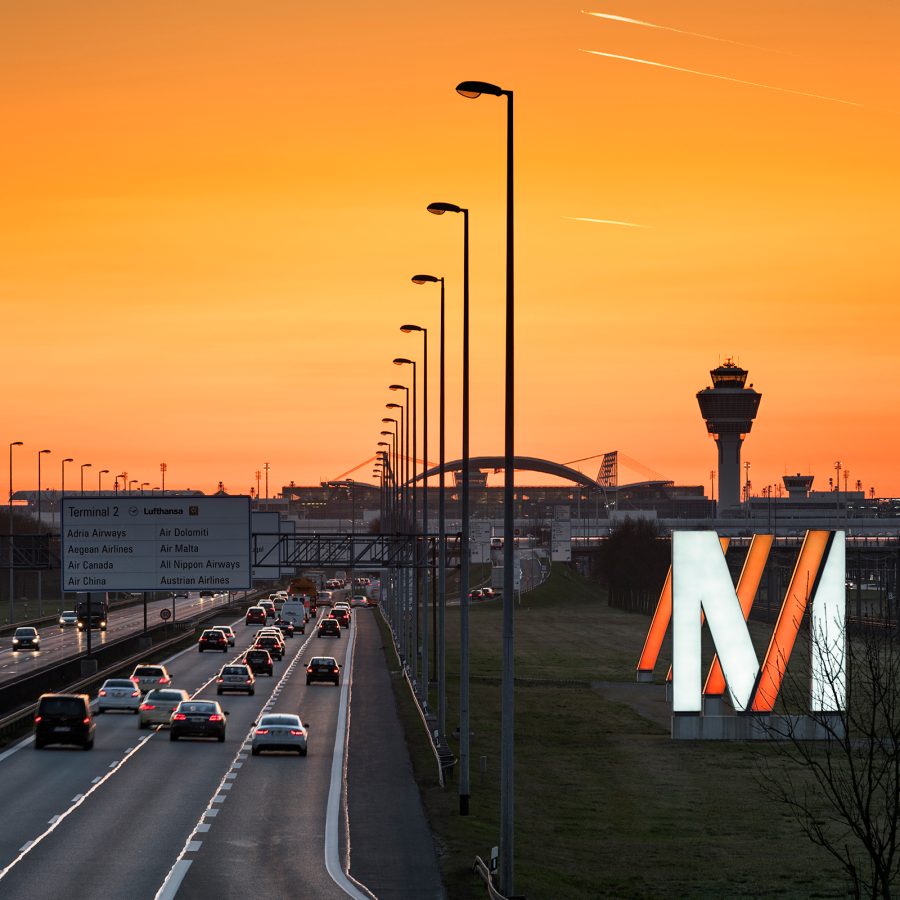
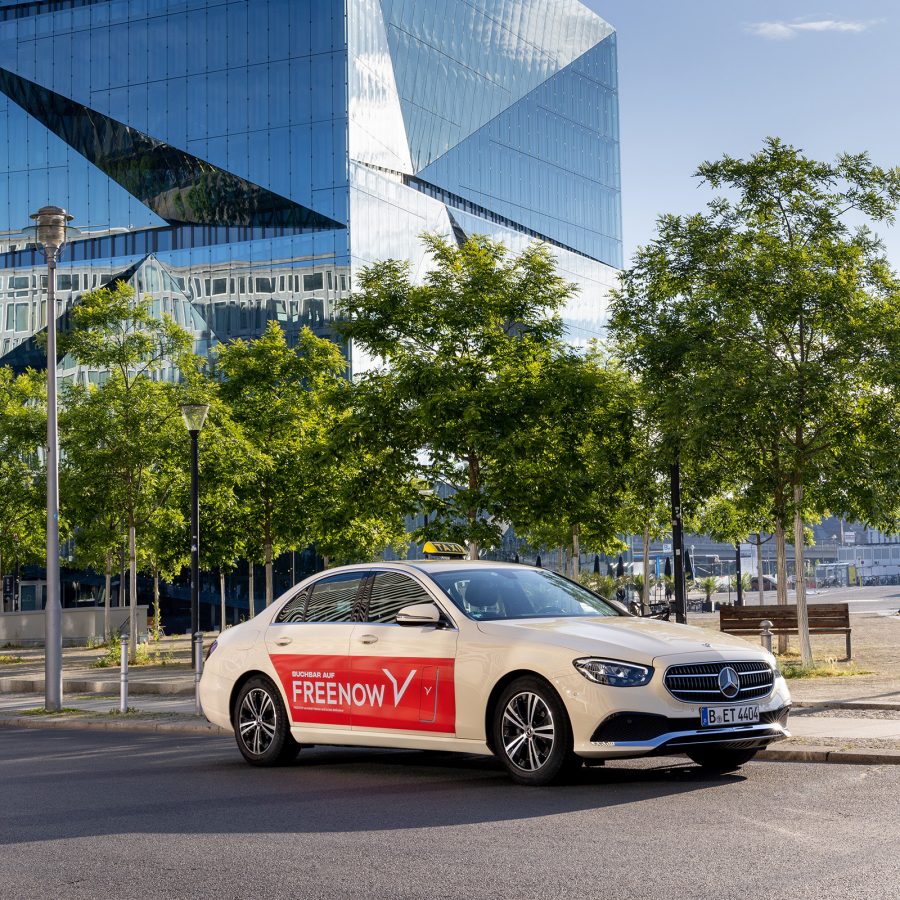
Where to start
From Munich's Franz Josef Strauss Airport (MUC), it’s a 40-minute journey into the heart of the city, by public transportation or car. Instead of ridesharing apps, most locals prefer old-school taxis, which are price-controlled and more reliable, and can be booked via the Free Now app. Conveniently, the airport also has dedicated taxi stands.
With a similar travel time, Munich’s S-Bahn (or suburban train) is a viable and cost-effective alternative. It has two lines running directly to Munich’s Central Station, with one train departing every ten minutes. Simply follow the green “S” signs to the ticketing machines and train platforms. Travellers planning on using public transportation for the duration of their visit should consider a CityTourCard .
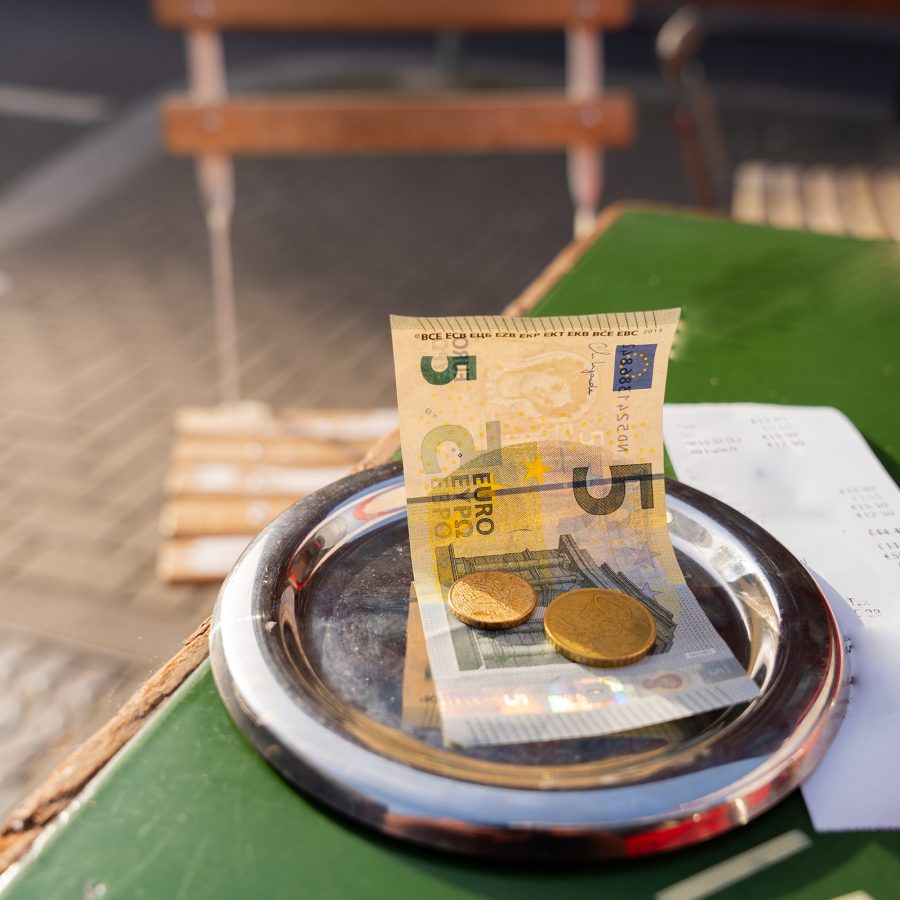
Credit: Alberto Marrupe Gutierrez/Getty Images
What to know
Perhaps the most important thing for travellers to know about Munich is that it's largely a cash-based economy. Despite the concentration of major tech companies in the area, many independent stores and restaurants, as well as taxis, do not accept payment by credit card or mobile phone.
Another important thing to remember is that tipping isn’t obligatory. It is, however, increasingly expected, with the standard tip being 10 per cent. It's important to note that the tip is not included in the final sum of your bill, and that diners should therefore tell the server how much they would like to tip before the server runs your card.

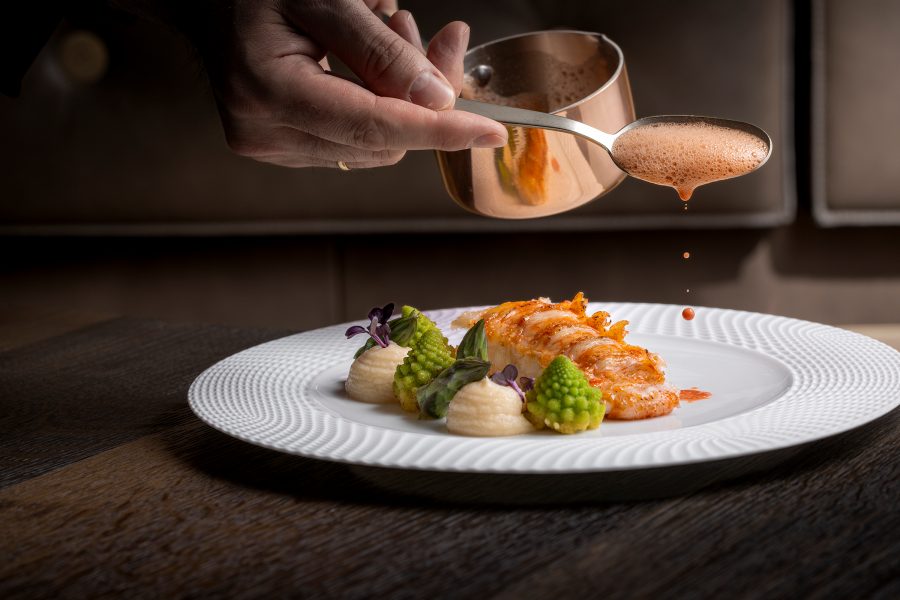
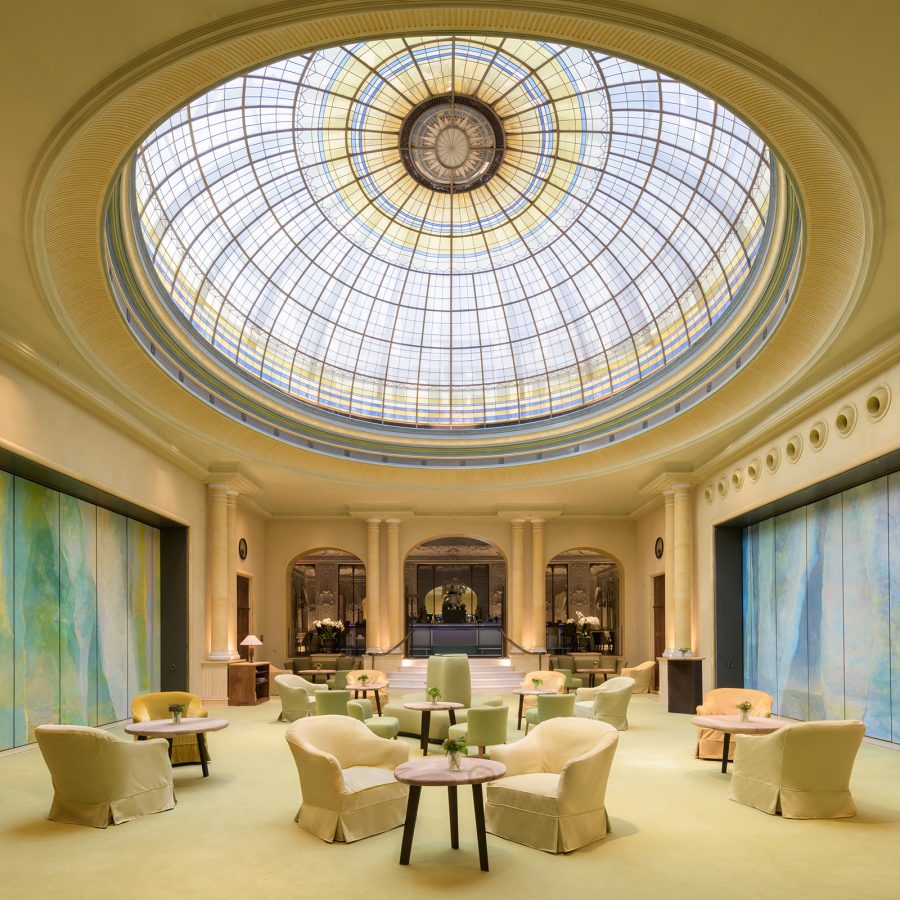
Credit: DanielSchvarcz
Where to take clients
When business lunch is on the agenda, there are a few restaurants that strike the perfect balance between a convenient location and a sophisticated atmosphere. For an upscale repast, try the award-winning Garden at the Hotel Bayerischer Hof . This restaurant offers a business lunch with fixed prices for two- or three-course meals. Another great option is the chic establishment Brenner . Tucked behind the ritzy Maximilian Strasse, it serves oysters, an extensive list of grilled meats and a selection of house-made pastas during lunchtime.
The city also has a roster of excellent dinner spots, perfect for impressing clients. Steakhouse Theresa is a local favourite, located just north of the city centre in the desirable Maxvorstadt neighbourhood, while Grill im Kunstlerhaus is considered a Munich institution. Then there’s Buffet Kull , described by its owners as “a French bistro in the New York style”. In addition to its mix of fish, meat and vegetarian main courses, the restaurant is beloved for its diverse wine selection.
Of course, Munich is also the world’s ambassador to Bavarian cuisine. For fine dining that offers the best of local flavour, Pfistermuehle blends tradition and modernity in a menu that sources the best regional ingredients. It’s only appropriate, then, that it’s located inside a historic and newly renovated mill.
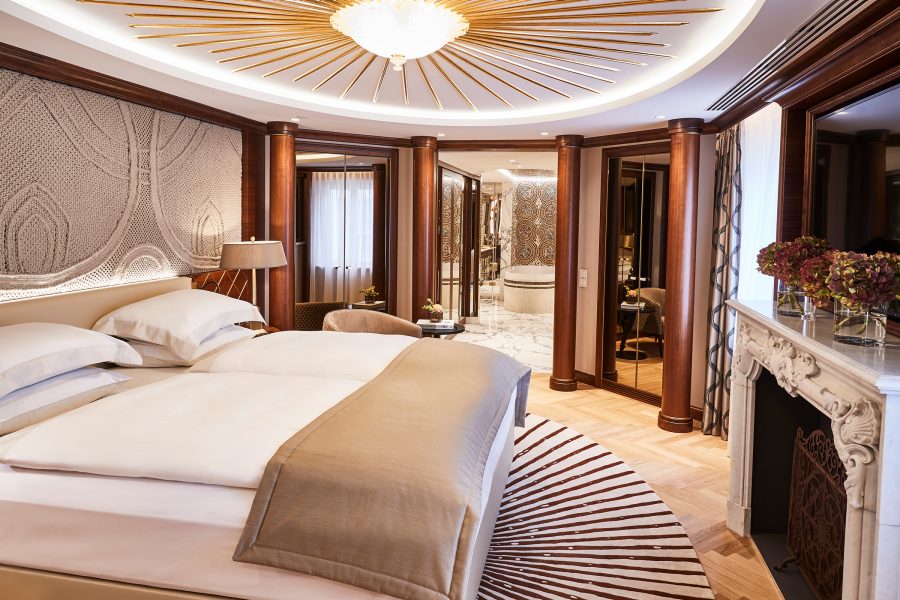
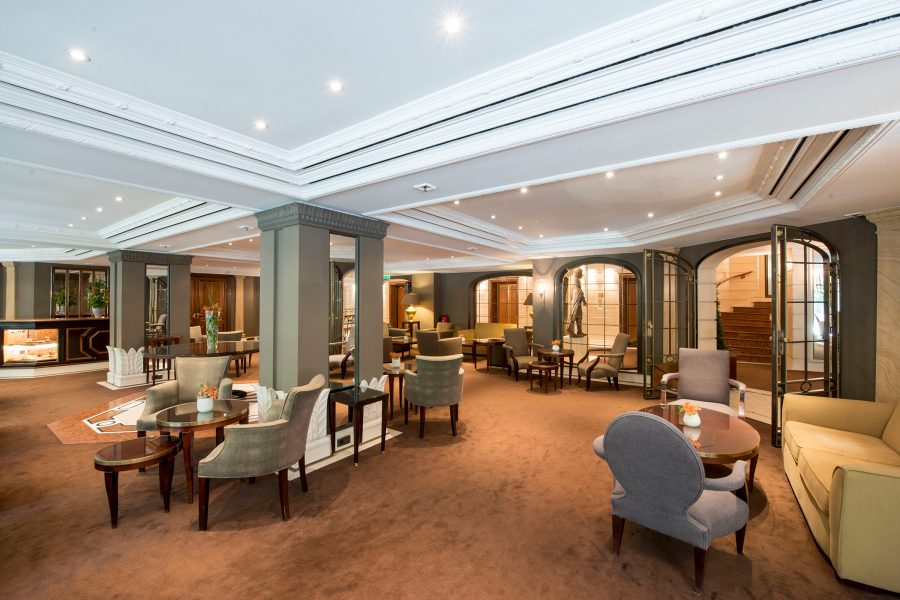
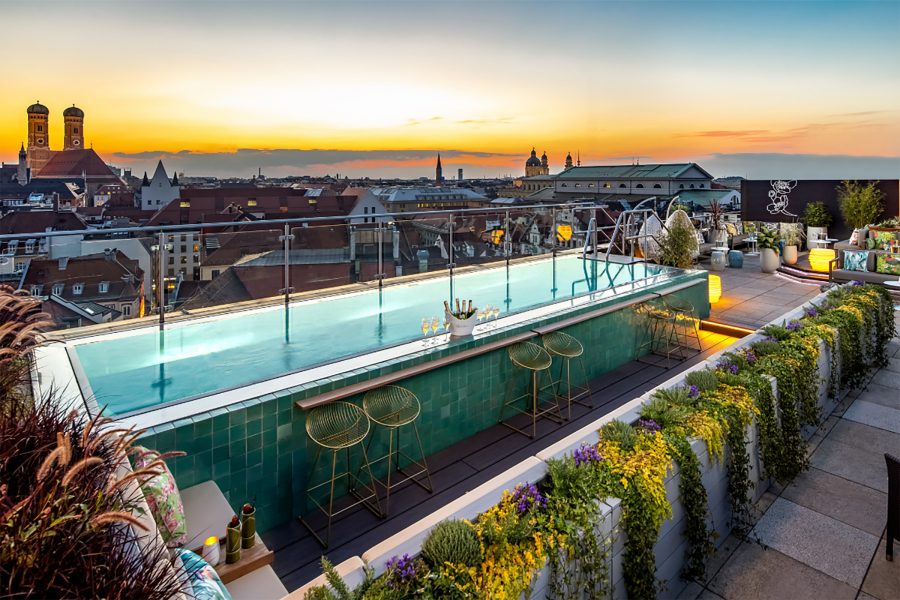
Where to stay
Most offices are concentrated along the efficient Stammstrecke, the main artery of Munich’s rail network, which all S-Bahns run through. Trains arrive every few minutes, meaning commuters rarely have long to wait.
For this very reason, business travellers may prefer to stay at a hotel located near one of the Stammstrecke stations. Situated between the Marienplatz and Karlsplatz stations, the five-star Bayerischer Hof is Munich’s most famous hotel – locals visit regularly for its diverse dining experiences and esteemed spa.
In this same neighbourhood, known as the Altstadt (or “Old City”), you’ll find all the usual five-starred suspects such as the Mandarin Oriental and the Kempinski’s Four Seasons Hotel or Vier Jahreszeiten in German. On the east end of the city at Rosenheimer Platz, the Hilton Munich City is also a great option.
Finally, on the west side, not far from the Oktoberfest grounds, is boutique hotel Roomers. Part of Marriott’s Autograph Collection, the hotel is known especially for its well-appointed rooms, perfect for design lovers.
What to say
In Munich, English is widely spoken and understood. In fact, for many companies in the city it is the de facto business language. Nevertheless, locals will always appreciate a few words in German. “Bitte” (please), “danke” (thank you) and “gerne” (with pleasure) will all be warmly received.
To sound like a true Bavarian, use the greeting “servus” rather than “hallo”. For farewells, say “tschüss” instead of “auf wiedersehen”.
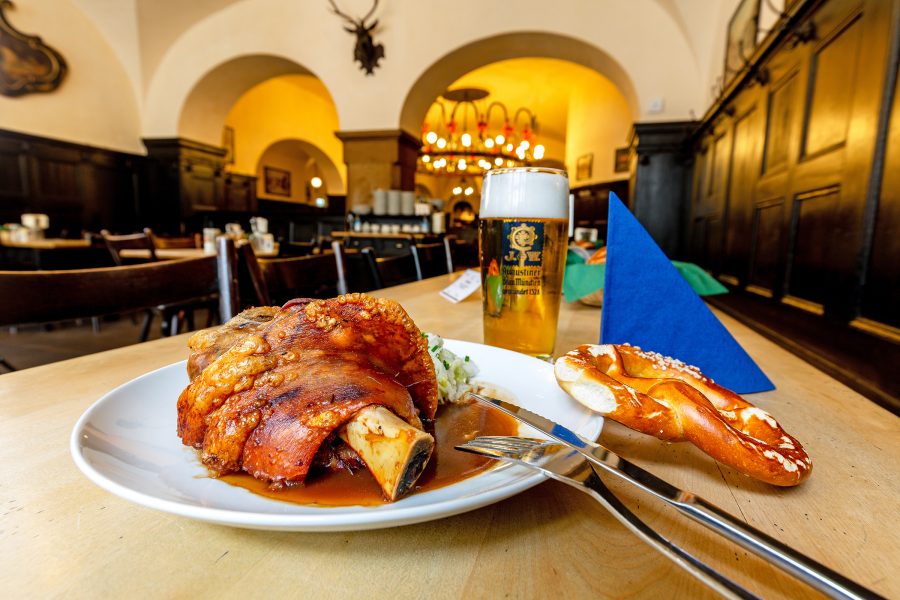

Credit: Rostislavv/Getty Images

Downtime done right
Because of Munich’s strong beer culture, locals love spending their freizeit at beer gardens. For an experience that combines pleasure with a bit of history, visitors can drink and dine at the Augustiner Beergarden , which has looked almost the same since its renovation in 1896. If the weather isn’t on your side, the Augustiner Stammhaus has plenty of room in its expansive yet cosy halls.
Of course, beyond the beer, there are a few places that business and leisure travellers alike should visit. Set in the middle of the Altstadt, Marienplatz offers a stunning view of Munich’s City Hall. A short distance away is Viktualienmarkt, an open-air market boasting a variety of local vendors. Here, visitors can find wines, cheeses and perhaps even some handmade gifts to bring home.
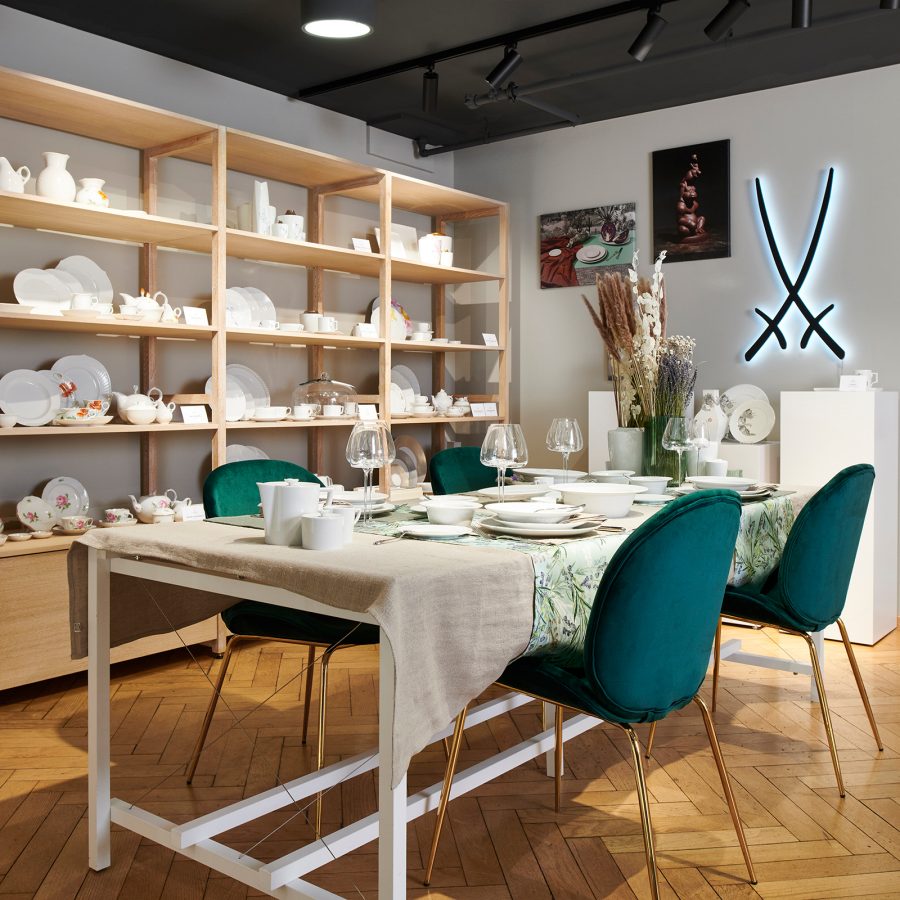
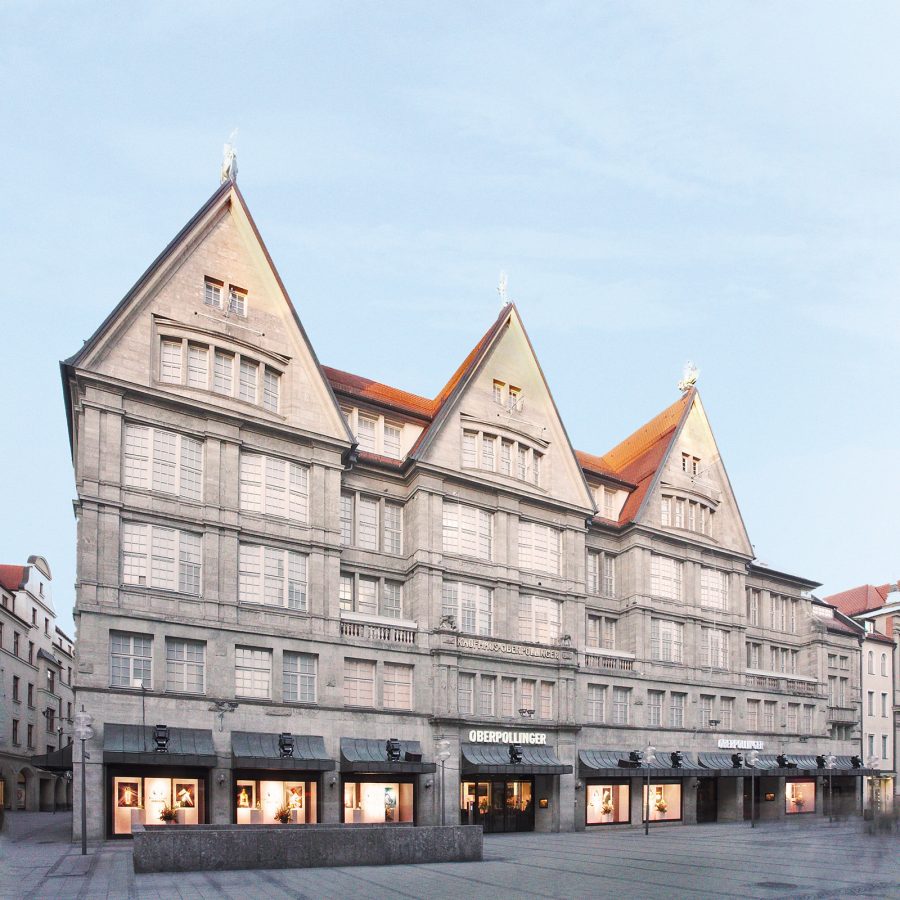
Credit: Oberpollinger KaDeWe GmbH
Take something home
Speaking of souvenirs: facing Viktualienmarkt is the renowned Kustermann, a multi-level store filled with high-end home goods including authentic German wares, like porcelain from Rosenthal and crystal glass from Nachtmann. After browsing such a showcase of exceptional craftsmanship, it’ll be hard to only purchase gifts for others, so make sure to bring something home for yourself.
Make travelling for business miles more rewarding
Sign up for Business Plus, a corporate travel programme that rewards companies and their employees for flying with us for business. Travellers will continue to collect individual Asia Miles and Status Points while the company also earns additional miles and Business Status Points, which you can redeem for a host of exclusive benefits and rewards.
More inspiration
Munich travel information
- China – the Chinese Mainland, Hong Kong SAR, Macao SAR and Taiwan Region
- Hong Kong SAR - English
- Chinese Mainland (China) - English
- Taiwan, China - English
- 香港特別行政區 - 繁體中文
- 中国內地 - 简体中文
- 中國台灣 - 繁體中文
- Africa
- South Africa - English
- Asia
- Bangladesh - English
- Korea - English
- Singapore - English
- Cambodia - English
- 한국 - 한국어
- Sri Lanka - English
- India - English
- Malaysia - English
- Thailand - English
- Indonesia - English
- Maldives - English
- ประเทศไทย - ภาษาไทย
- Indonesia - Bahasa Indonesia
- Myanmar - English
- Vietnam - English
- Japan - English
- Nepal - English
- Việt Nam - tiếng Việt
- 日本 - 日本語
- Philippines - English
- Australasia
- Australia - English
- New Zealand - English
